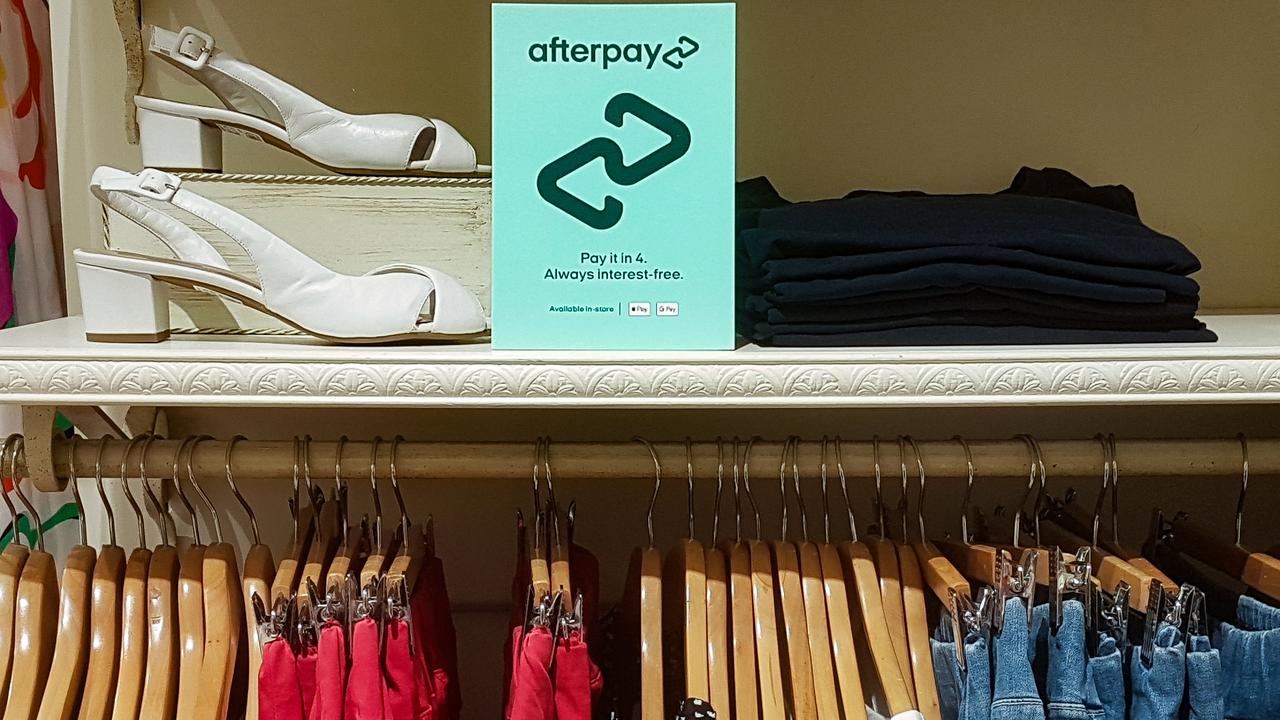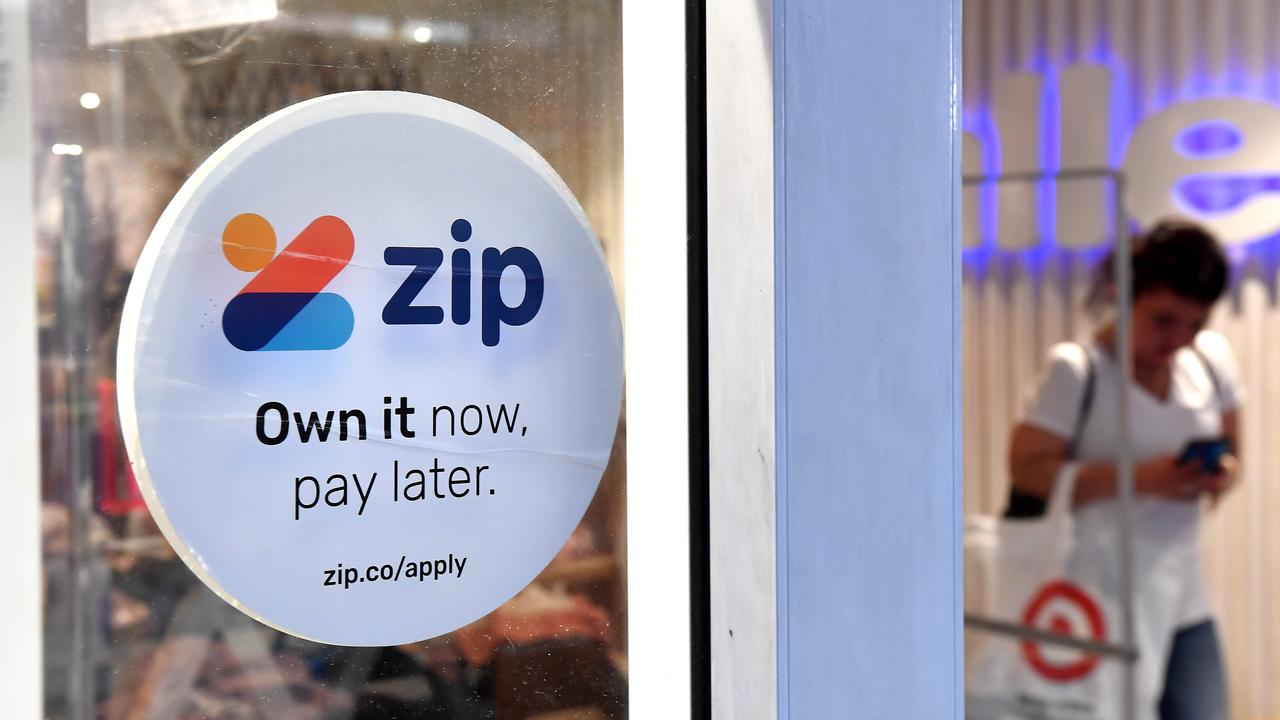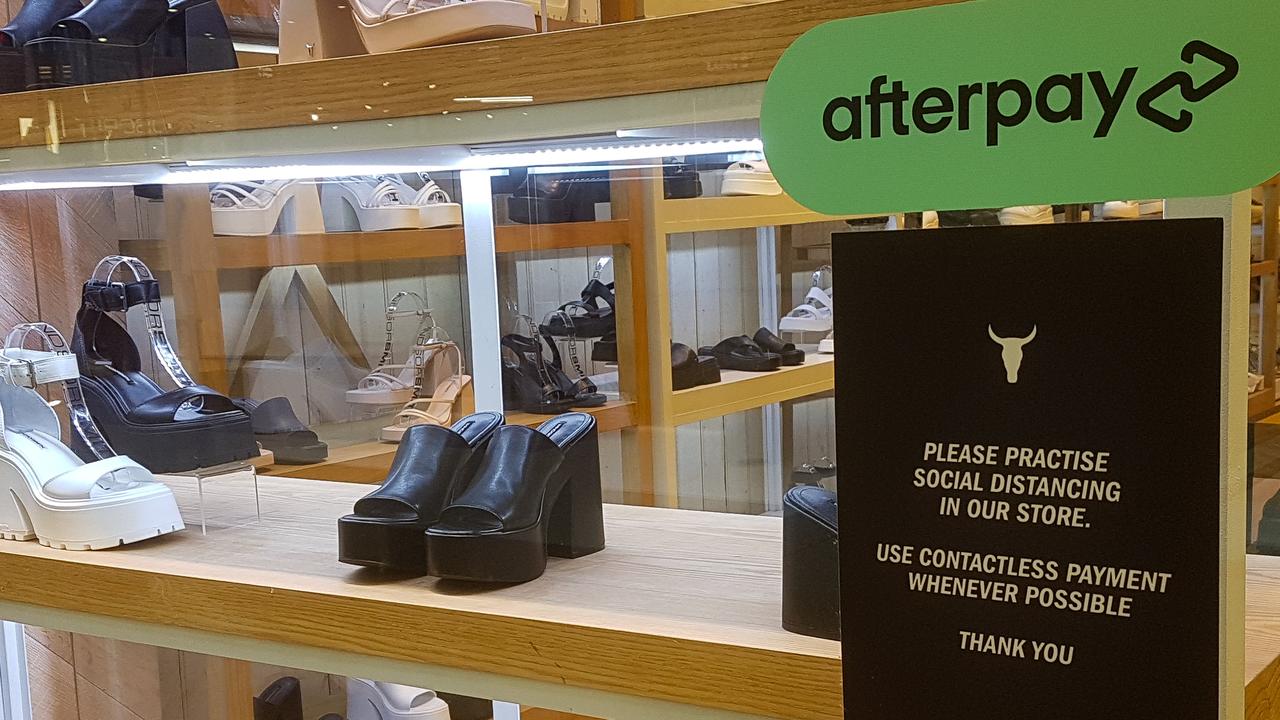Why consumer groups are targeting buy now, pay later
Consumer groups are calling for a crackdown on buy now, pay later providers including Afterpay and Zip, accusing the industry of causing “harm”.
Aussies are falling into “extreme financial hardship” as a result of using buy now, pay later services, according to Choice, which has banded together with a global alliance of consumer groups to call for a crackdown on the industry.
One-in-five Aussies have used buy now, pay later (BNPL) in the past 12 months to fund essential things such as food, groceries, or utilities, Choice’s research found.
The sector has also crept into services such as childcare, rent and even in pubs with groups warning this could lead to a “debt spiral” for people.
Shockingly, 78 per cent of people who have missed or been late on a BNPL payment have experienced financial hardship as a result of fees, forcing them to take out an additional loan or foregoing household essentials, Choice’s data showed.
Consumers International has brought together 11 consumer groups across nine countries which are calling for urgent action on the industry, with the alliance including Australian members Choice, Financial Counselling Australia and Consumers’ Federation Australia.

Loans of up to $30,000 with no checks
Patrick Veyret, senior campaigns and policy adviser at Choice, said more Australians are getting “trapped into harmful” BNPL services and the sector needs regulating.
“Buy now, pay later loan providers are now able to sell loans of up to $30,000 with no legal credit checks and are now selling loans for essential goods and service such as rents, electricity bills and food and groceries, so it’s concerning there are no checks and balances that buy now pay later providers have to follow,” he told news.com.au.
BNPL works by the service provider paying outright for the goods so the consumer can have them immediately, while they pay back the money in instalments.
The industry is not regulated under the National Credit Act like other products such as credit cards and loans, because BNPL providers do not charge interest on repayments allowing them to use that loophole to avoid it.
The global alliance has called for BNPL products to be regulated the same way as other forms of credit, including caps on fees and charges, restrictions on unsolicited marketing and obligations to help people in financial hardship.


‘Close the loophole’
Alan Kirkland, CEO of Choice, said the global group coming together shows how much damage these unregulated financial products are causing across a number of countries.
“International consumer groups have sounded the alarm on the harm being caused by the unfettered buy now, pay later industry. We are calling for governments across the world – including the Australian Government – to ensure that buy now, pay later providers are subject to the same consumer protection laws as other credit providers,” he said.
“It’s time to close the loophole in the buy now, pay later industry in Australia. For too long, companies have been allowed to sell unregulated loans to Australians. Failure to act will create further hardship for individuals and families who are already doing it tough.”
Choice’s research showed that 30 per cent of Aussies have used a BNPL service in the past 12 months and half of those have missed or been late on a payment.
The products have been popular among Millennials as they shun credit cards, with concerns women in particular who are under 30 and earn less than $40,000 a year are targeted.
Kirkland added BNPL providers are known for targeting people with existing loans.
“This is a fast path to extreme financial hardship. Financial counsellors have reported an increase in people with multiple loans from different BNPL companies,” he said.

Australia lagging globally
The UK has signalled it will move to regulate its BNPL industry via the Financial Conduct Authority, while last year California classified BNPL as a loan.
It means Australia has been accused of “lagging” behind other countries when it comes to legal checks on the sector.
“It is disappointing there hasn’t been action,” Veyret said.
“We heard from financial counsellors that some people can have 10 or 11 buy now, pay later loans and that’s because providers don’t have to follow any legal requirements to check if loans are suitable.
“Action needs to happen now or more people will fall into financial hardship.”
In Australia, the BNPL market was worth around $14.2 billion in the financial year ending 2021, according to UBS, but concerns have been raised about the viability of industry.
Experts have predicted potential “carnage” for the buy now, pay later sector as providers burn through cash, bad debts balloon and customers retreat from using the service – a model which they say isn’t sustainable.






